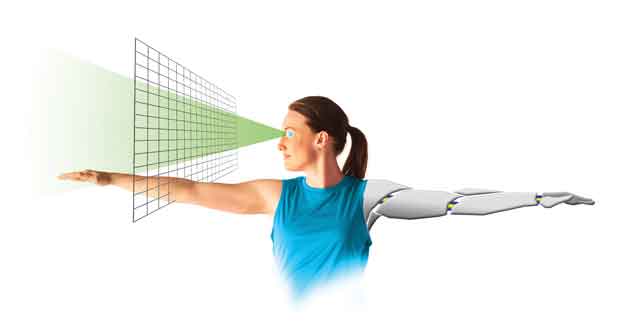I won’t say how long it’s been — I’d be dating myself — but I remember vividly when one of my college professors told our class that there were not five human senses, as is commonly assumed, but actually 10. He laid out that in addition to sight, touch, taste, hearing, and smell, there are also the senses of balance, movement, emotional pain, hunger, and thirst.
His position was compelling, and at the time it defined higher learning for me, mainly because it introduced the idea to start looking at things in a new way, not to assume we know what we know.
So why am I telling you this?
Well, it made me think of how engineers can capitalize on that idea — to not assume what we know — and to perhaps focus their next designs on enhancing the senses. In fact, I would suggest that if engineers did this alone, they would have a lifetime harvest of opportunity.
Sure enough, I did some digging, and there are quite a few products already in various stages of development that are doing just that.
Some are practical. Some are cool. Hopefully all will inspire you.
From the “good things can come from bad things” department, one MIT graduate student (after an admittedly long night) developed high-tech ice cubes that measure how much a person drinks from a glass of alcohol. The concept is simple: The ice cubes provide red, yellow, and green cues for the imbiber to slow down or proceed, even going so far as to automatically text a friend if the red danger warning cue is ignored, alerting that friend that the imbiber may be overdoing it.
In the sports arena, there’s a big call for the use of “multi-axis” sensors and MEMS, whose methodology is effective for monitoring joint motion of the hip and knee — a technology that surely could help analyze and improve golf swings (which of course rely on a great sense of balance and movement).

Engineering is increasingly providing greater independence for people as developments in prosthesis design for example are providing greater mobility with advances in bionic eyes, hands, and legs, among many others.
If having “Spidey Sense,” has ever appealed to you, a Ph.D candidate at the University of Illinois at Chicago named Victor Mateevitsi has designed a wearable suit that enables the wearer to interact with the environment by channeling ultrasonic waves with smart sensors, sensors that detect hazards that humans cannot, such as radiation (which, by the way, would have prevented Peter Parker from becoming Spiderman in the first place!).
Those of us old enough to remember Lee Majors as the “$6 Million Man” — an astronaut with bionic legs, a bionic right arm, and a bionic eye with night vision functionality — can enjoy the fact that a true bionic man named Rex, or “Robotic Exoskeleton,” has been created.
According to Shadow, the robotics team that created him, Rex features retinal implants that allow him to sense objects in front of him and cochlear implants to allow him to hear. He also has a heart, lungs, artificial pancreas, kidney, spleen, trachea, and a functional blood circulatory system.
Not to be outdone, the first bionic eye, dubbed “Argus II Prosthetic Retina” (designed by Sylmar, CA-based Second Sight) just gained approval from the U.S. Food and Drug Administration. This device will hopefully greatly increase the ability to give sight to the blind, by in effect, creating an electronic retina through a tiny set of electrodes.
The prosthesis can even allow users to identify shapes and colors, and safely avoid impediments to mobility.
Lastly, a young amputee will be able to once again physically feel what he is holding as he is scheduled to have a bionic hand transplanted onto him. Consider this: The hand will be controlled by his thoughts while electrodes will be attached into his nervous system — sending signals back to his brain from sensors, enabling him to feel what he is touching from his fingertips, palm, and wrist!
How do these advancements make you feel? Inspired, I hope.
How do these advancements make me feel? That it’s time for engineers come to their senses!
John Filippelli
To comment on this Viewpoint go to http://www.eebeat.com/?p=6184
Advertisement





